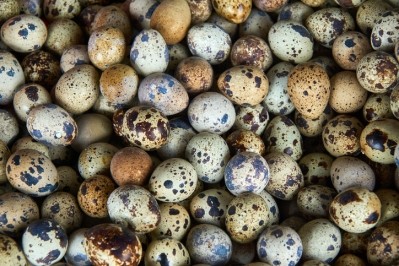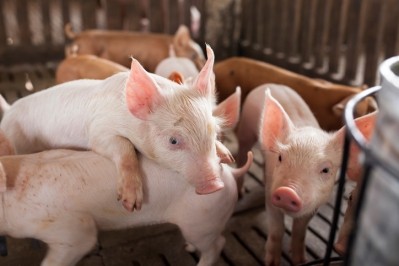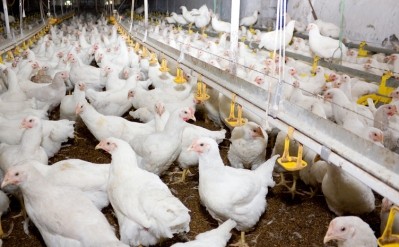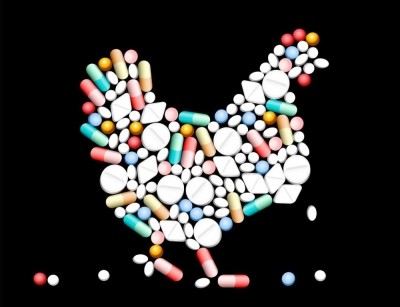Dietary curcumin may boost egg quality, hen health
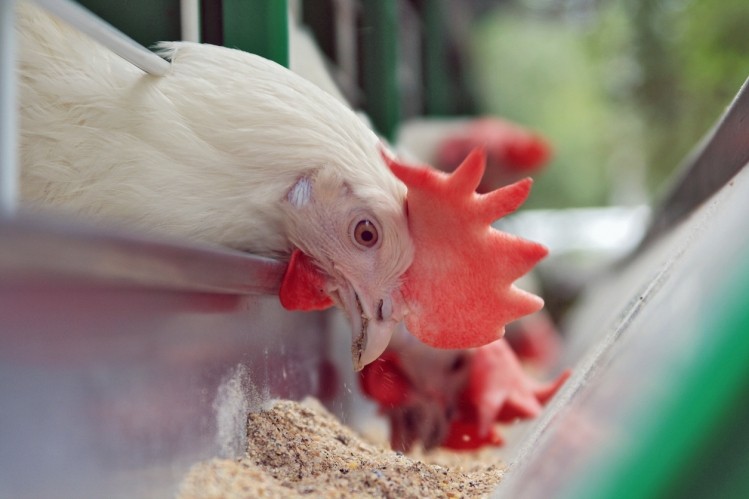
A team of researchers from several academic institutes in Brazil examined the use of curcumin in the diet of laying hens.
The group published its research in the journal of Research in Veterinary Science.
“The aim of this study was to evaluate whether the addition of curcumin in the diet of laying hens could show positive effects on animal performance and egg quality, as well as to evaluate its anticoccidial effect."
The researchers found that adding curcumin to the diets of laying hens has an anticoccidial influence and may improve the overall quality of the egg laid.
“We can conclude that curcumin added in the diet of laying hens was able to increase egg antioxidant levels, as well as to reduce lipid peroxidation in fresh and stored eggs, contributing to the improvement of egg quality,” the authors wrote. “Moreover, the curcumin exerted beneficial effects on animal health by stimulating the immune response and controlling coccidiosis.”
Why curcumin?
Globally, there are measures in place to address the use of chemicals for disease control and the promotion of animal growth, the researchers said. However, the development of the poultry and egg market relies on high quality and product safety.
Using feed additives to improve animal efficiency, control pathogens and boost performance is a common technique in poultry production, they noted. Additives also can improve egg qualities like weight, yolk color and eggshell strength.
“The internal egg quality depends on preservation, feed composition, and alterations on these factors may also affect egg quality, since animal feed affect directly the yolk lipid stability and high temperatures leads to yolk oxidation. In order to improve the oxidative stability of chicken eggs, the use of antioxidant substances in the diet of laying hens have been considered a promising approach.”
Typical additives in poultry rations may include antibiotics, chemotherapeutic agents and vaccines, they said. But some may have high costs or bring unwanted side effects.
Interest in alternatives, including natural additives, to provide antimicrobial and anticoccidial effects is high, the researchers said. “Some pathways are involved in the action mechanism of natural additives, such as: changes in the intestinal structure, modulation of the innate and adaptive immune responses, increased stress resistance and reduction of pathogenic microorganisms, avoiding disturbances in animal digestion and nutrient absorption,” they added.
Use of natural additives like plant products is of interest to the poultry business, they said. Curcumin comes from Curcuma longa, a plant native to Asia and considered to be medicinal. It has been linked to a reduction of oxidation, protecting cells against lipid peroxidation and a reduction in free radicals.
Feeding trials
In the feeding trial, 60 laying hens were given one of three corn-soybean meal trial diets for a period of 21 days, said the researchers. The diets included a control (T0), and that diet with 30 (T30) or 50mg/kg (T50) of curcumin.
However, no antibiotics or anticoccidial drugs were added to any of the diets, they said. The additive curcumin used was a commercial product.
On the first day of the feeding trial all birds were naturally infected with Eimeria necatrix (65%), E. acervulina (28%) and E. maxima (7%), they said. Birds were evaluated for egg production and egg mass was noted the final three days of the trial.
Eggs were collected on days 14 and 21 and a sample was checked for specific gravity, eggshell strength (kgf), albumen height (H), yolk index (YI), yolk color, percentage of yolk, albumen and shell, lipid peroxidation (TBARS) and total antioxidant capacity (TAC), said the researchers. An additional sample of eggs was collected on day 21, stored for 21 days and then examined.
The yolk and albumen were analyzed for the presence of curcumin, they said. Blood and fecal samples were collected from the hens on days 0, 14 and 21.
Results
Overall, egg mass did not differ among the diets, the researchers said.
For fresh eggs, no differences were found for specific gravity, haugh unity, yolk index, yolk and albumen pH, eggshell strength, yolk color and the amount of yolk, albumen and shell on days 14 or 21, they said. However, color results were higher for eggs for supplemented birds on days 14 and 21.
“For the eggs stored for 21 days, significant differences were found between groups regarding some parameters: specific gravity (higher in treatments T30 and T50), yolk index (higher in treatment T50) and yolk coloration only in the yellow intensity (higher in treatments T30 and T50) when compared to the control group T0,” they said. No curcumin was found in the yolk or albumen using the HPLC process.
TBARS levels were lower for both fresh and stored eggs from the hens getting supplemented diets, they said. Fresh eggs from hens on the supplemented diets had increased TAC levels, as did stored eggs for the birds on the T50 diet, they said.
Seric amounts of albumin and uric acid were similar for all eggs, although seric levels of total proteins grew on day 21 for birds getting the curcumin, the researchers said. Additionally, fecal samples from birds on the supplemented diets had reduced amounts of oocysts on days 14 and 21.
“Based on these evidences, it is possible to conclude that the addition of curcumin in the diet of laying hens has an anticoccidial effect and improves egg quality,” they said.
Source: Research in Veterinary Science
DOI: doi.org/10.1016/j.rvsc.2018.01.022
Title: Feed addition of curcumin to laying hens showed anticoccidial effect, and improved egg quality and animal health
Authors: G. Galli, A. Da Silva, A. Biazus, J. Reis, M. Boiago, J. Topazio, M. Migliorini, N. Guarda, R. Moresco, A. Ourique, C. Santos, L. Lopes, M. Baldissera, L. Stefani
